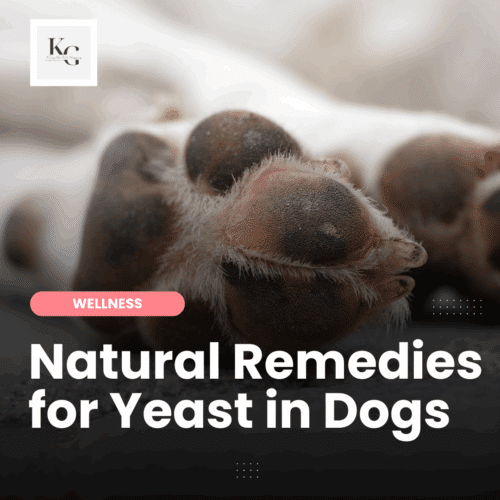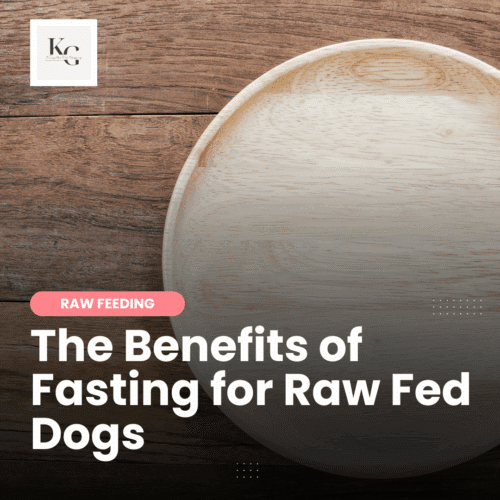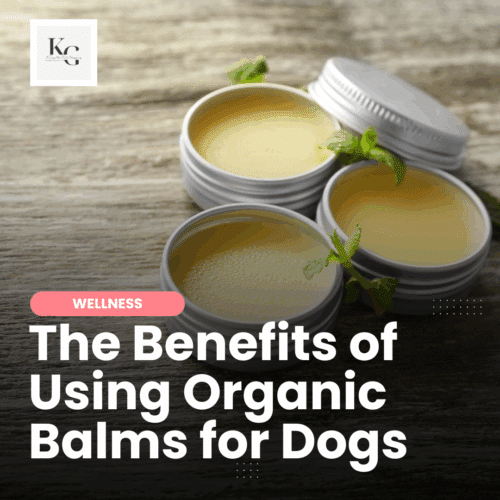Keep the Tail Wagging is supported by pet parents. I occasionally earn a commission (at no additional cost to you) when you click through an affiliate link to one of my favorite products. Thank you for your support. Read More
I think my followers on Facebook are beginning to think that I'm obsessed with coconut oil or that CocoTherapy is paying me to promote their product. Nope, they haven't given me a dime. I am obsessed with their products, and, to be creepily honest, I'm a bit obsessed with Carmina and Charisa, too. And I use coconut oil daily in my home.
13 Amazing Benefits of Virgin Coconut Oil for Dogs
Before we start, let's review why virgin coconut oil is great for dogs (and humans).
- Coconut oil is rich in antioxidants.
- Improves nutrient absorption of fat-soluble vitamins.
- Prevents the spread of cancer cells and enhances the immune system.
- Regulates the immune system.
- Repels mosquitoes and fleas.
- Soothes and heals cuts, wounds, hot spots, bites, and stings.
- It’s an antimicrobial that kills yeast and clears ear infections.
- It’s a natural anti-inflammatory and helps with arthritis.
- Prevents hairballs because it’s rich in fiber; and because of the fiber, coconut oil also is great for pets with anal gland issues and helps to keep pets regular.
- Freshens breath and makes an effective toothpaste.
- Coconut oil is a thermogenic oil that stimulates the metabolism, helping a dog lose weight.
- Great for the brain and nervous system; liver converts MCTs into Ketones and is the ideal food for the brain, preventing cognitive decline in aging pets.
- Allergies are due to an overactive immune system, and you can regulate the system by adding lauric acid to a dog’s diet.
Recent Studies Prove Coconut Oil isn't Good for Dogs?
In 2020, pet parents online were introduced to #cocogate, and the audience went wild after spending several minutes scratching our heads. Long story short, on March 16, 2020, an online magazine for pet parents came out with an article against feeding coconut oil to our dogs that referenced studies (the article called it new research) that were dated:
- January 10, 2013 – study was about dietary oils, including coconut oil, but it didn't differentiate between the different types of oils. In other words, no mention of virgin coconut oil (VCO) was mentioned so I'm not sure if VCO was a part of this study.
- June 15, 2017 – this study also mentions coconut oil, but it's unclear if they are referring to VCO or the other types (processed) coconut oil.
- July 3, 2019 – the link that takes you to an abstract of this study that doesn't even mention coconut oil, virgin or otherwise. It appears to lump all fat in the same bucket.
- February 28, 2018 – the link that takes you to an abstract of this study also fails to mention coconut oil, virgin or otherwise.
- April 29, 2016 – this study does mention coconut oil, but it doesn't inform us of the type of coconut oil.
But I Thought Coconut Oil was Good for Dogs
Before we all went wild, everyone was turning to their neighbor to ask…
- Dog Mom 1: “But didn't they (the online magazine) repeatedly tell us that coconut oil is good for dogs?”
- Dog Mom 2: “Yes, and CocoTherapy hosted an amazing session at the 2018 Raw & Natural Dog Summit.”
- Dog Mom 1: “Wait, 2018? Some of the recent studies the magazine referenced were prior to 2018. Why did they have CocoTherapy there if these studies proved that coconut oil is bad for dogs?”
- Dog Mom 2: “I just don't know. I guess we better start doing our own homework.”
What Dates Reflect a “Recent” Study?
I'm not a veterinarian, so I'm not going to pretend to be adept at reading studies. However, given the online magazine's history of promoting the use of coconut oil with dogs, I would have expected that a “recent” study had been published six months before #cocogate, but that's just my opinion. That lack of a mention of “coconut oil” or “virgin coconut oil” in studies isn't a smoking gun; there are other terms that may have been used as the people behind the study discuss the science behind this oil.
However, one common critique of this flip (or is it a flop) on the topic of coconut oil for dogs has people asking a question repeatedly – are these studies about VIRGIN COCONUT OIL? If they are, then we should definitely give them a listen, however, if they're not – then shouldn't the magazine clarify this in their articles?
What Types of Coconut Oil is the Focus of the Study?
In reading the studies and abstracts referenced by the online magazine, I immediately saw a lack of clarity of the type of coconut oil used in the studies, which makes me wonder if the people behind the studies understand that there is a difference and it's important because how a coconut oil is processed changes how it responds in the body.
Anyway, a company that produces organic, virgin coconut oil (non-GMO, cold pressed, hexane-free, unrefined, non-bleached, no trans fat, no hydrogenated fat) responded to the online magazine's claims that coconut oil isn't healthy for dogs and #cocogate was born and seven months later, we're still talking about coconut oil. Even after the coconut oil company came out with a retraction of some of their language used in earlier responses.
Confusing? Not really.
When Authorities on a Topic Disagree
Too often, I've made the mistake that I warn others not to make; I follow the leader and fail to do my own research. It's not because I'm lazy or ignorant. Keeping up with my dogs' health and diet is an overwhelming task, and there is a lot of information (and contradictory information) floating around online, so I follow people who are an authority on the topic of canine health and nutrition. There are people in the dog lover community whom I respect, and if they tell me that their best friend is a 6′ tall white rabbit, then I envision a guy in a rabbit costume. I don't assume that they're crazy or lying. I'm not suggesting that people are lying to us about coconut oil; I've learned that sometimes it's about perspective. What's true to one person may not be true to me, and their beliefs may not apply to my dogs.
So I do my own homework now.
As #cocogate unfolded, I found myself reading more and more about the benefits (and risks) of coconut oil both for humans and dogs. I don't believe that I'm wrong to trust a company that produces high-quality coconut oil products for pets and pet parents; and my reading confirmed that my trust wasn't misplaced. It also became clear that there has been a campaign to demonize coconut oil, and “experts” are lumping all coconut oil (no matter the sourcing or processing) into the same bucket, which, as I explain below, isn't comparing apples to apples.
Also, check out the blog post I wrote after attending the CocoTherapy session at the 2018 Raw & Natural Dog Summit. Loads of great information there. Another great read is How Coconut Oil Got Blackballed by Wikipedia.
When Studies Show that Coconut Oil is Poison
“Coconut oil is pure poison,” according to a Harvard professor. That's a strong statement, and I'm certain that it'll scare anyone away from coconut oil. Combine that statement with studies, and you've made your point. Or have you?
I'm not one to follow conspiracy theories, but 2020 seems to be the year to start, and I find myself dusting off my tin foil hat before I leave the house. And I am rocking a stylish, tin foil fedora as I write this blog post.
When someone uses “scientific studies” to prove their point, I have a few questions to ask. Why? Just look at the most recent DCM study that was riddled with mistakes. Mistakes are going to happen; however, I hold scientific studies to a higher standard, and if I, a complete novice, can identify them immediately, how in the world did the study get published? Who benefits? So, as #cocogate progressed, I began to ask more questions about the “recent studies” referenced:
1 – Who funded the study? As many people will say, “follow the money.” Who benefits from the study's results? If an industry competitor funded the study, then can it be viewed as unbiased? Could they have left facts out of the study in order to skew the results in their favor?
2 – Is the study published? Normally studies undergo stringent “peer review” process, where it is scrutinized by a research scientist with serious credentials – PhDs, etc. Oftentimes, a study will undergo multiple reviews before it can be accepted and published as a sound, scientific research publication. If an anti-coconut oil article references a study to support their stance, make sure that the study had actually been published and isn't still undergoing peer review.
3 – Is the study relevant to the article? In a recent anti-coconut oil article, a study was referenced on hydrogenated coconut oil, and another was referenced on refined coconut oil used with beef tallow. To support the viewpoint that virgin coconut oil is bad, I believe a study on virgin coconut oil should be referenced. I also believe that the anti-coconut article should have stated that the studies referenced were not about virgin coconut oil; instead, the online magazine double-downed on their stance by having a veterinarian share her thoughts, also anti-coconut oil. Surprise surprise. When asked, without disclosing that the thought
We can support or disprove practically anything by referencing studies. Few people will question us because few people, myself included, follow the links and read the studies because we trust that the people delivering this information (veterinarians, scientists, nutritionists, influencers, bloggers, pet store owners, etc.) have our pets' best interest in mind when delivering information.
Not All Coconut Oil is the Same
Three types of coconut oil are being referenced in #cocogate – virgin coconut oil, refined coconut oil, and hydrogenated coconut oil and I'm going to do my best to explain the difference.
Virgin Coconut Oil – virgin coconut oil is produced using one of two methods: a wet method and a dry method. The coconut oil that I purchase for use with my dogs (and myself) is cold-pressed, which helps it retain more nutrients.
FYI, “extra virgin coconut oil” is a marketing ploy. I understand there is no difference between virgin and extra virgin coconut oil. And that being the case, I avoid all “extra” products because I think they just want my money.
Refined Coconut Oil – in a refining process, the oil is steamed, heated, and bleached to create a cleaner, odorless, and tasteless coconut oil. This doesn't sound too bad until you wonder what the steam and heat are doing to the nutrients and ask yourself what is being used to “bleach” the coconut oil. Sadly, it's probably chemicals.
The online magazine referenced a study about refined coconut oil combined with beef tallow to explain why feeding coconut oil to dogs wasn't a good idea. Beef tallow is rendered fat derived by melting the fat from meat. I've read that it's super nutritious, but this is about humans cooking with tallow. For animals, I think the opposite would be the case because this is cooked fat (melting), which pet parents understand can lead to an increased risk of pancreatitis.
Partially Hydrogenated Coconut Oil – this processed is used to help the coconut oil remain solid even during warmer months and it extends the shelf life. This process also adds trans fats to the coconut oil, which is why it remains solid; the process is adding an extra hydrogen to coconut oil. And these artificial trans fats have been deemed hazardous to our health, leading to heart disease, increased inflammation, and a possible increased risk of diabetes.
The online magazine referenced a study about partially hydrogenated coconut oil to explain why feeding coconut oil to dogs wasn't a good idea.
Reading the details behind these three types of coconut oil, it's easy to see why someone would think we should NEVER feed coconut oil to our dogs (or ourselves) if we focus on refind and partially hydrogenated coconut oil.
More Studies on the Benefits of Coconut Oil
As I was learning about coconut oil, I wondered if the reason for the confusion is the lack of studies about virgin coconut oil. But as I continued to do research, it didn't take long to find several studies that not only shed light on the benefits of virgin coconut oil (VCO), but also spotlighted the reason for the anti-coconut oil movement.
Lauric Acid is a Medium-Chain Fatty Acid, Coconut Oil is a Medium-Chain Triglyceride – this study shows that LAURIC ACID (C12) in Virgin Coconut Oil IS a MCFA and IS NOT metabolized like long chain fatty acids. It’s immediately converted to energy/ketones by the liver.
Coconut oil and palm oil's role in nutrition, health and national development: A review – In this study, the authors address the marketing campaign that branded coconut oil as “unhealthy highly saturated fats” that effectively reduced consumption in West Africa and around the world due to fear of an increased “risk of coronary heart disease.”
Cholesterol, coconuts, and diet on Polynesian atolls: a natural experiment: the Pukapuka and Tokelau Island – in this study, it was found that a population obtained a higher percentage of calories from coconuts with no adverse effects on their health.
Effects of medium-chain triglycerides on weight loss and body composition: a meta-analysis of randomized controlled trials – this study found that MCTs increase the number of calories we burn as compared to LCTs. I have read in several places that the results can be mixed and the increased calorie burning results may wane after a couple of weeks, which is why it's advised that we cycle in and out of ketosis instead of trying to maintain a steady state of ketosis.
Twenty-four-hour energy expenditure and urinary catecholamines of humans consuming low-to-moderate amounts of medium-chain triglycerides: a dose-response study in a human respiratory chamber – in this study, we learn that eating 15-30 grams of MCTs per day with meals produce a 5% increase in calories burned over a 24 hour period.
More Support for Feeding Coconut Oil to Dogs
- Article – Coconut Oil, by Dr. Ray Peat. About Dr. Ray Peat: PhD. Biology, with specialization in Physiology, University of Oregon.
- Article – The CocoTherapy Difference, CocoTherapy.com
- Article – Crazy About Coconut Oil, by By CJ Puotinen for Whole Dog Journal
- Article – How to Use Coconut Oil for Dogs and Cats, by Dr. Karen Becker for HealthyPets.Mercola.com
- Article – Don’t Cast Your Pets’ Dietary Needs Into This Human Mold, by Dr. Karen Becker for HealthyPets.Mercola.com
- Article – The Lauric Acid Debate: Is it a LCFA or MCFA? Is it Good for You, or Bad for You?, CocoTherapy.com
Is Coconut Oil Safe for Our Dogs?
In my opinion, based on what I've learned over the years, I believe that coconut oil purchased from CocoTherapy is safe to feed to my dogs.
I learned a lot about coconut oil this week, and #cocogate taught and reminded me of a few things about being a proactive pet parent:
- It's my job to do the research on my dogs' health and diet. Part of that research is speaking to authorities in the field, reading articles and books, and speaking with my vet.
- It's a mistake to blindly support a person or news outlet to the point where I do not or cannot think for myself. Everyone is fallible, and I don't want to allow someone's bias or mistake (in my opinion) negatively impact the health of my dogs.
- What works for one dog may not work for other dogs. As a blogger, I write about my life with dogs. To expect others to follow my lead and not consider their own dog's individual needs is wrong. Therefore, I absorb information, even information that I disagree with, and continue to educate myself in order to determine what is right for my dogs.
To wrap this up, a friend of mine said something to me a long time ago, and I've used this to determine if I'm on the right track with my dogs and with my blog. Basically, she told me that if we reach a point where we are more focused on ourselves (our hurt feelings, our ego, etc.) than the dogs, then we've lost track of why we do what we do. This is always in the back of my mind and drives me to continue learning. We recently lost one of our dogs, and the pain is still fresh. But it's a reminder that it's my responsibility to educate myself about my dogs' health and nutrition, and that responsibility lead me down a path to learn about how great virgin coconut oil is for my dogs and me.
Read More About Raw Feeding
- Understanding Embark Vet Dog DNA & Health Tests
- The Benefits of Fasting for Raw Fed Dogs
- The Benefits of Using Organic Balms for Dogs
- Using Essential Oils with 10 Calming Recipe for Dogs
- The Difference Between Red and White Meat for Raw Fed Dogs







Excellent article …. I eat it I feed it to my dogs. Great stuff!